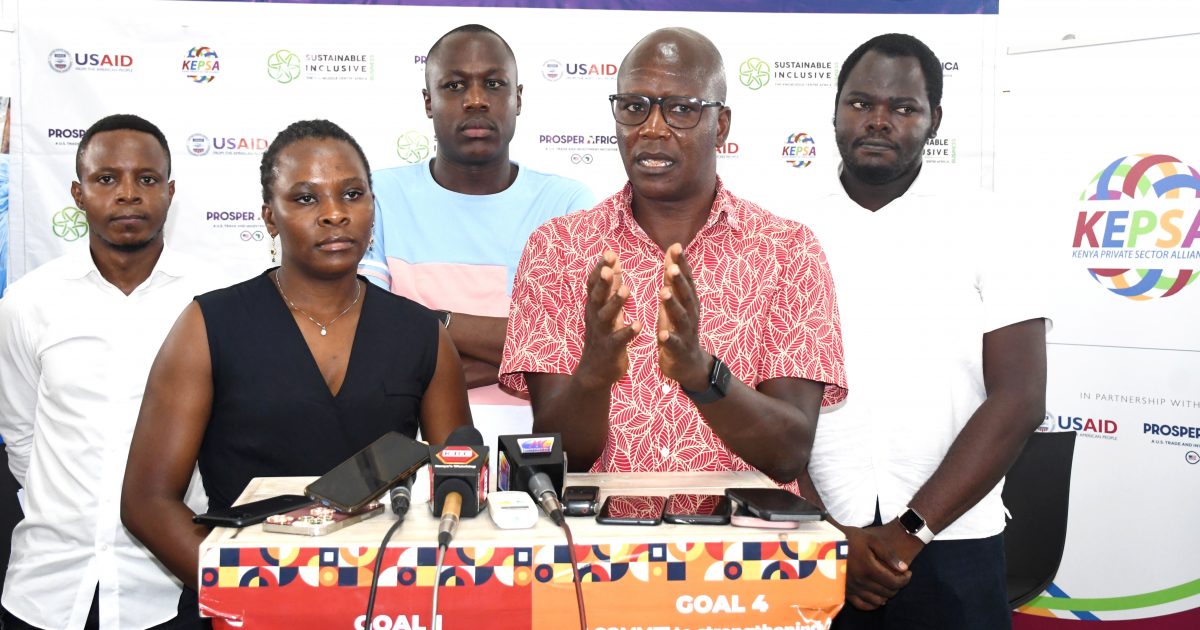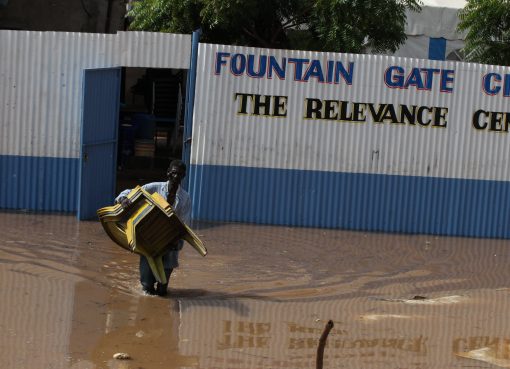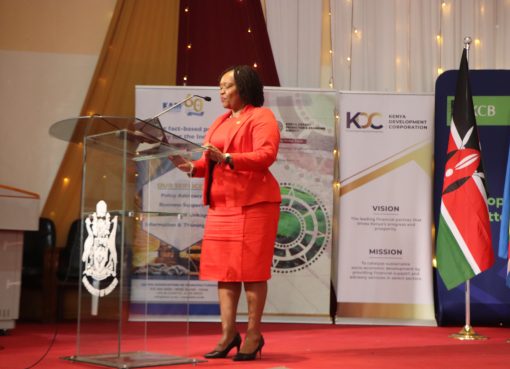In a collaborative initiative aimed at tackling environmental pollution, the Kenya Private Sector Alliance (KEPSA) with the Mombasa County Government hosted a sensitisation forum directed at engaging in discussions to educate business owners and manufacturers regarding Extended Producer Responsibility (EPR).
EPR is an environmental policy approach that establishes a producer’s accountability for the post-consumer phase of a product’s life cycle.
Speaking at the Ratna Square, Mombasa, the Deputy Governor of Mombasa County, who is also the County Executive Committee Member (CECM) Department of Environment, Solid Waste Management & Energy, Francis Thoya urged manufacturers to collaborate with the government by presenting their strategies for post-consumer waste collection.
Thoya emphasised that the County Government is committed to engaging with all private sectors within the region to facilitate discussions on their plan for collecting waste products from consumers, specifically for recycling purposes.
Furthermore, he revealed the County government’s intention to withdraw from direct involvement in waste collection, opting instead to privatize the process. This strategic shift is anticipated to generate employment opportunities for the youth, aligning with broader economic and environmental objectives.
“The primary objective of this initiative is to utilize the allocated funds to empower youth by fostering the establishment of Community-Based Organisations (CBOs) among the youth in grassroots areas,” Thoya noted.
He emphasized the forthcoming implementation of the Mombasa County Solid Waste Management Act 2023, outlining that the legislation mandates each household to contribute a fee of Sh. 500 for waste collection services.
This initiative underscores the County’s commitment to enhancing waste management practices and ensuring the sustainability of such services for its residents.
Following the previous Management Act of 2021, which never saw implementation, households were mandated to pay a fee of Ksh200 for waste collection services. However, the county assembly deemed this fee insufficient for the provision of the service.
“If we introduce the issue of segregation of waste at source, this will reduce the amount of plastic collected and dumped in the Mwakirunge area,” said Thoya.
Thoya noted that Mombasa County dumps almost 1000 tons of waste to the Mwakirunge garbage dump daily.
Josephine Wawira, communications lead at KEPSA, emphasized the importance of not only addressing downstream waste management but also prioritizing waste reduction efforts.
She stressed the need for proactive measures to minimise the amount of waste entering the environment, underscoring the significance of sustainable practices for a cleaner and healthier future.
Wawira added that this can only be done by designing products in a way that makes them more reusable and recyclable as well as reducing the amount of production especially if it is unnecessary or problematic.
The EPR policy includes the shifting of responsibility (physically or economically, fully or partially) upstream toward the producer and away from municipalities as well as the provision of incentives to producers to take into account environmental considerations when designing their products.
By Fatma Said





